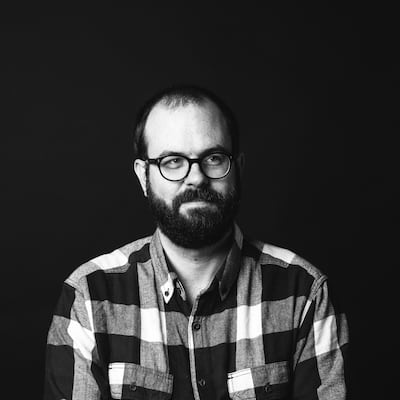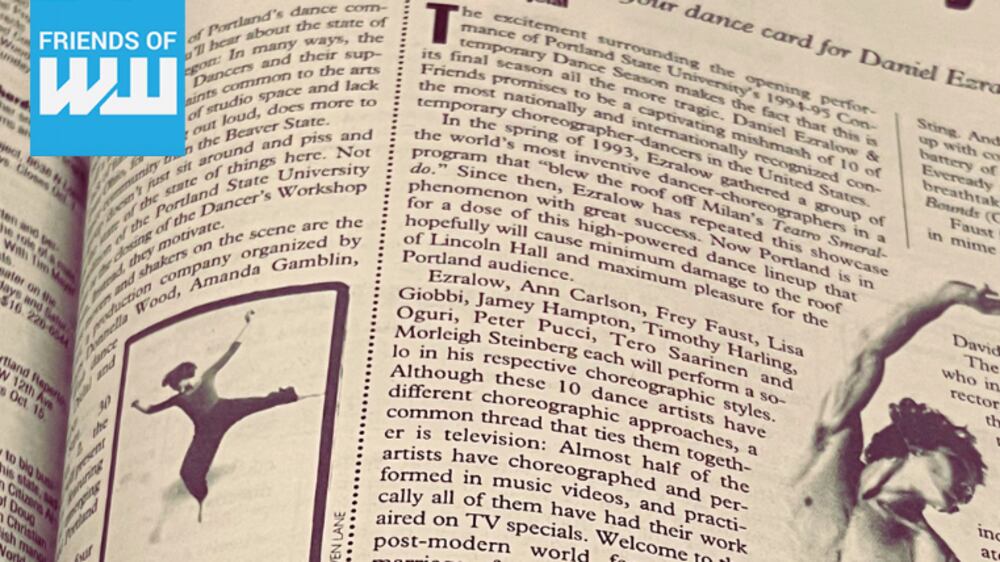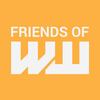Over the next four days, you’ll be hearing from Willamette Week staff on the importance of expanding our Arts & Culture coverage. To expand our coverage, we are asking for your support. With each contribution, we are better equipped to inform, celebrate and rejoice over Portland’s vast array of artists and cultural offerings.
Yesterday, you heard from Bennett Campbell Ferguson, Willamette Week’s assistant Arts & Culture editor. Today, Aaron Mesh, a Floridian turned Portland news editor.
- - -
By Aaron Mesh, WW’s News Editor
I came to Willamette Week to be a movie critic.
In 2006, my father and I drove cross-country in a Chevy Lumina so I could take a job writing criticism for an alt-weekly in a city I knew little about. Few newspapers in the country were still hiring film reviewers (and even fewer had responded to my résumé). So I left Chattanooga, Tenn., and moved to Portland.

My journey into newspapers always seemed to begin at the movies. In Chattanooga, three years earlier, I helped launch a plucky alt-weekly called The Pulse by writing the paper’s only movie review each week. There weren’t any critics’ screenings in Chattanooga, so I bought a ticket to whatever was showing at the multiplex each weekend and wrote 800 words each Sunday night.
Soon after, I volunteered to be The Pulse’s copy editor. After a while, I became the paper’s only reporter, and its news editor, working first out of a renovated factory building, then a largely abandoned shopping mall. After I finished the news stories each Sunday night, I still wrote the movie review. Those were some of happiest days of my life.
Not much is left of The Pulse now. I still have one of its coffee mugs.
I’m the news editor at Willamette Week now. I reviewed movies for five years, then I didn’t. I moved into news in part because I kept bumping into stories where Portland’s cultural foment bled into its politics. I camped inside Occupy Portland, waited until the wee hours in Pioneer Courthouse Square for Dave Chappelle to arrive, and hoped that people would stop talking to me about fluoride. I watched Uber invade the city, saw guitarist Carrie Brownstein workshop jokes for a cable TV series, and had a Molotov cocktail explode at my feet as police charged down Stark Street. Someday, I will refer to these as the happiest days of my life.
Newspapers traffic in the ephemeral. Most of what we write about is soon forgotten. The controversies that incense our readers any given week pass into irrelevance. What endures are fleeting moments, the life of a city, frozen forever in ink. Newspapers are a little like the movies that way.
What I’m trying to say is that art captures a small fragment of life and tries to make sense of it. Arts journalism tries to make sense of those efforts and hopes to spot when an attempt is especially perceptive or powerful. That conversation is how cities thrive. It’s how we create a collective memory of the wonderful things we saw.
I hope you’ll help Willamette Week keep trying.

